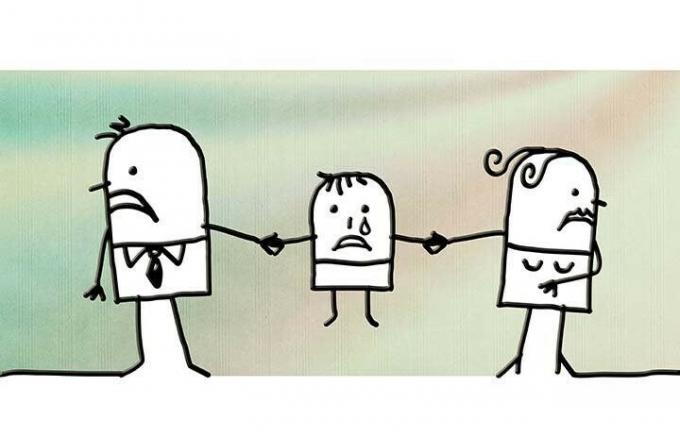Interview Bárbara Zapico: children and separation from parents
When there is a marital separation, It is often said that those who suffer the most are the children.
This, on many occasions, is completely true. On many occasions, the quarrels, the conflicts and the bad atmosphere between the two ex-spouses end up seriously affecting life and the harmony that every child deserves in her life. A family environment that is going through a marital breakdown can present levels of stress and pessimism that can psychologically affect the child.
Bárbara Zapico tells us about separations, from the child's point of view
To find out more about these painful processes of divorce and separation, especially from the perspective of the child, we have spoken with the Madrid psychologist Barbara Zapico, an authority on couples therapy who will shed light on this issue.
Bertrand Regader: What are the most frequent forms of discomfort that children of divorced couples complain about?
What children can complain about most is non-communication. Children, regardless of their age, must be told about the situation. It is not necessary to tell hair and signs what has happened in the couple, but it is necessary to make them participants in the situation and not leave them on the sidelines, since they belong to the family.
In judicial processes that involve relationship problems or marital crises and divorces, sometimes there is talk of a concept called Parental Alienation Syndrome. What is it, and why does it cause controversy, according to your point of view?
He Parental Alienation Syndrome (PAS) are a series of symptoms that occur in children as a result of the influence exerted by a parent so that the child rejects the other, generally in situations of separation/divorce. It would be a behavior of underestimation, without justifying.
It causes so much controversy because to this day the APA has not recognized it as a disorder. On the other hand, it is very difficult to diagnose it since sometimes the child himself rejects the evaluation coerced by the parent who applies it. It is also important that when talking about a diagnosis we really make sure that there has not been any mistreatment of the children by one of the parents.

In what ways can a situation of parental alienation affect the psychological well-being of a child?
The consequences for children can be very harmful, causing psychological disorders such as anxiety, sadness... It is an affectation that produces a cognitive, behavioral and emotional alteration. The child is manipulated in such a way by one of the parents that he comes to despise, hate, and reject the other, without the latter having had a disruptive behavior with the child.
Is it common for children to experience traumatic memories when their parents separate on bad terms? What should be done to communicate to children that their parents are going to separate or divorce? And what common mistakes are made? And what can be done to prevent them from feeling unprotected or alone, when they stop living with both parents?
The appearance of traumatic memories can appear in adult life, when one is aware of the way their parents separated and what they were involved in said action. When the child is young, many times he is not aware of the scope that the behavior can have that his parents can exert on him, since they are his attachment figures who protect him, take care of him and give him dear.
The communication of a separation must be done when it is going to materialize. We cannot transmit information that is still in the air, because we destabilize children. You can't lie to them, but you can't make them dizzy either. Both parents have to talk to the child/ren and tell them that now they are going to live in two different houses, that they are going to have two rooms, that their life is going to change...
Only one cannot speak, we cannot tell them that we are playing a game and that they are going to have two houses... in short, we cannot deceive them, because children are much more aware of things than we think and they also have feelings that are not being taken into account account.
The organization is the most important. A chart can be made with the days of the week that you will be with each parent so that they know. Convey affection, trust, ask them how they are every day, take an interest when they are not with you...
When it comes to offering psychological therapy to these minors who have suffered from the confrontation between their parents, what can be done to help them?
First of all, it is important to know that if both parents do not agree that the minor attend or consult, he cannot be treated, except in cases where one of them has parental authority.
Generate a stable, reliable environment that allows them to express, if there is, their anger and frustration about the situation.
What is the fundamental idea that a boy or girl has to keep when it comes to understanding what is happening in a separation process?
The main idea is that he is not responsible for the separation. Depending on age, they will be told one thing or another, adapting to their ability to understand. It is necessary to convey to the child that both parents are not going to stop loving him because they see him less and that if he needs to ask questions or needs to talk, that he can count on both at all times.
